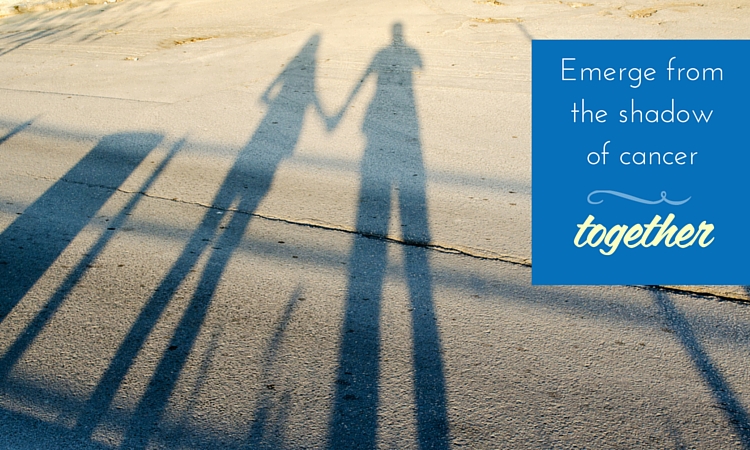When men are diagnosed with cancer, the women in their lives often find themselves thrust into a new role. No longer just a wife, mother, sister or daughter—now they’re also a caregiver.
While many women are caring by nature, being a cancer caregiver might not come naturally. Hope4Cancer patient Carl Barrett and his wife, Linda, were kind enough to reflect on their experiences during Carl’s cancer journey and offer some sage caregiving advice.
Now 87 years old, Carl is an orthodontist and lecturer, and developed his own orthodontic system called ZeroBase Orthodontic Philosophy. Through his career, he’s trained groups of doctors around the world. Linda said that Carl is, in fact, a significant force in bringing orthodontic practices and techniques to many parts of the world. She calls him a “visionary and a leader in his profession.”
The couple enjoys taking walks together and traveling, and you can clearly see the love and admiration shared between them. I hope you’ll find the story of their partnership through cancer as inspiring as I have.
Respect Reactions
Carl was diagnosed with bladder cancer in March 2011—news that was a shock to them both.
“Our initial reaction was fear,” Linda said. “Neither of us had ever experienced cancer in our worlds, so it was all new to us.”
Carl became quiet and reflective, and Linda became proactive, seeking to do whatever she could to help. The takeaway, here, is that all of us react to cancer news differently. Every reaction is valid, and none is better than any other. What’s important is that patient and caregiver respect and support each other emotionally while the news sinks in.
Support Decisions
Speaking of support, a caregiver’s support must extend through to the patient’s treatment decisions. Carl’s first doctor wanted to surgically remove his bladder; however, Carl wanted to explore other options, and Linda supported him fully.
“I’m an effective researcher,” Linda said, “so a large part of my support was gathering information and alternative treatments for consideration.”
During her research, Linda came across Hope4Cancer. Because of the wide range of available treatments – everything from hyperthermia and Sono-Photo Dynamic Therapy to oxygenation methods and nutrition – she and Carl knew it was the right place for them.
Linda instinctively understood that the caregiver-patient relationship works best when the caregiver listens, acknowledges and actively supports the patient’s wishes. She played to her strengths as a researcher and was able to find the best fit for Carl’s physical needs—which, in turn, helped bolster his emotional needs, too.
Act as a Team
At Hope4Cancer, we repeatedly stress the importance of nutrition on the path toward health. Part of Carl’s individualized treatment plan was an organic, gluten-free, plant-based diet, and instead of making his nutritional needs “Carl’s problem,” Linda turned it into a joint challenge.
“We changed the way we looked at food, and we both changed our diets,” she said. “We had a common goal, and we worked it as a team. We both had to be on board with the program on all levels, or it wouldn’t work.
Here again, Linda knew that as Carl’s caregiver, tackling everything, including his nutritional needs, as a team was an important step. Carl was able to keep a positive attitude because he always knew he wasn’t going it alone.
Stay Organized
With cancer comes mounds of paperwork and hefty treatment schedules. Therefore, an important aspect of caregiving is organization.
“I would get his routine and treatments organized to the point that he’d have his daily routine outlined by the time of day, and he carried it on a clipboard,” Linda said. “As he completed a treatment, took a supplement, etc., he checked it off. This was an invaluable tool for Carl, as it could be quite overwhelming otherwise.”
Helping patients settle into a routine and adhere to it is a vital aspect of treatment success, and as a caregiver, you can play a huge role in facilitating the day-to-day schedule.
“Once he knew his routine, he never failed to do his treatments and was absolutely inspirational with his discipline,” Linda said. “Given the proper tools as provided by Hope4Cancer, plus Carl’s determination and attitude, it’s easy to understand why his treatment was successful.”
Communicate Effectively
As important as organization is communication.
“As a result of Carl’s diagnosis, our lives changed quite drastically, and much of our time and thought was devoted to his health,” Linda said. “We geared our social lives down to a crawl and spent our time working toward healing. Because our passion became Carl’s health, communication between the two of us was very easy.”
Remember to keep all communication timely, honest and judgement-free for best results.
Foster Positivity
Lastly, an often-overlooked component of cancer recovery is attitude. As such, helping the patient stay positive is a key part of caregiving.
“We had such confidence in the treatments that we put on a happy face, even when it wasn’t easy,” Linda said. “The power of a positive mental attitude cannot be overstated. The magic happens with the right tools, the right discipline, and a great attitude.”
I’m so happy for these two! Carl is still traveling around the globe to deliver his lectures, and Linda continues to serve as a supportive partner. Carl has been virtually cancer-free since 2012 after his Hope4Cancer therapies. Yet, despite his success, he’s stayed consistent with follow-up treatments, always keeping in touch with his after-care team. I truly believe that Linda’s proactive nature is a big reason Carl was able to sustain the good results of his treatments. Of course, they still have some scares—after all, cancer doesn’t just go away. But even when Linda would bring up a new detail with me, it would never be with a sense of panic. At all times, Carl and Linda were in control, which I believe is the reason for their success.
I hope some of their tips can serve you well as you embark on your new role as a caregiver. If we can help you through that transition, please let us know!
Do you have other tips or advice for caregivers? Join the conversation by tweeting @Hope4CancerMex or commenting on the blog or Facebook page.
Hope4Cancer Testimonials
In accordance with the FTC guidelines concerning the use of endorsements and testimonials in advertising, please be aware of the following:
The testimonials reflect the real-life experiences of individuals who were treated at our Hope4Cancer Treatment Centers. However, individual results may vary. We do not claim, nor should any website visitor assume, that any individual experience recounted is typical or representative of what any other patient might experience. Testimonials are not necessarily representative of what anyone else using our services may experience. The people giving testimonials in our films, videos, websites, or print materials, have not been compensated for use of their experiences.
If you or a loved one have any specific questions regarding Hope4Cancer treatments for your individual situation please reach out to our admissions team here or call at (619) 669-6511

